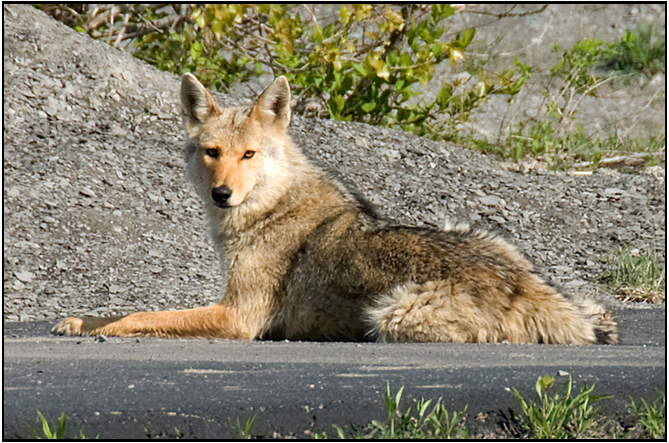We can expect an increase in coyote sightings between now and February as young coyotes leave their parents in search of mates and territories to call their own. And, with the onset of winter, coyotes are more willing to venture out of their rural or wooded habitats and into residential areas in search of food and shelter.
While coyotes are unlikely to attack humans, they can become more aggressive if they find an area that suits their needs and they want to defend it. Tips for keeping coyotes from settling in your neighborhood:
- NEVER feed coyotes.
- Remove bird feeders and outdoor pet dishes during the winter months. These attract squirrels, which coyotes prey on.
- Make sure garbage is stored in a container with a secure lid and do not allow containers to overflow.
- Never leave children or small pets unattended outside.
- Clear or cover wood and brush piles, and check under decks. Coyotes are likely to use these for shelter.
- If coyote sightings are common in your neighborhood, consider installing a fence or motion-activated light in your yard.
If you do encounter a coyote, stand up, yell at it, wave your arms, and throw something at it from a safe distance. The response may not be immediate, but the coyote will eventually become intimidated and retreat.
For the safety of all residents, the City of St. Charles does not allow hunting within city limits according to Ordinance 9.60.030 and firearms and/or traps are not permitted on Park District property. Trapping is risky because there is no guarantee that the only things caught in the traps will be coyotes.
Besides, studies have shown that trapping or hunting programs are largely ineffective. If the conditions that lured the coyotes to an area still exist, hunting or trapping will only temporarily remove coyotes. And it won’t be long before other coyotes move in to replace them.
For information, please read the Coyote Management Plan the City developed with the Park District. You also can contact the Department of Natural Resources at 847.608.3100.

